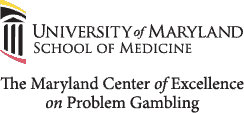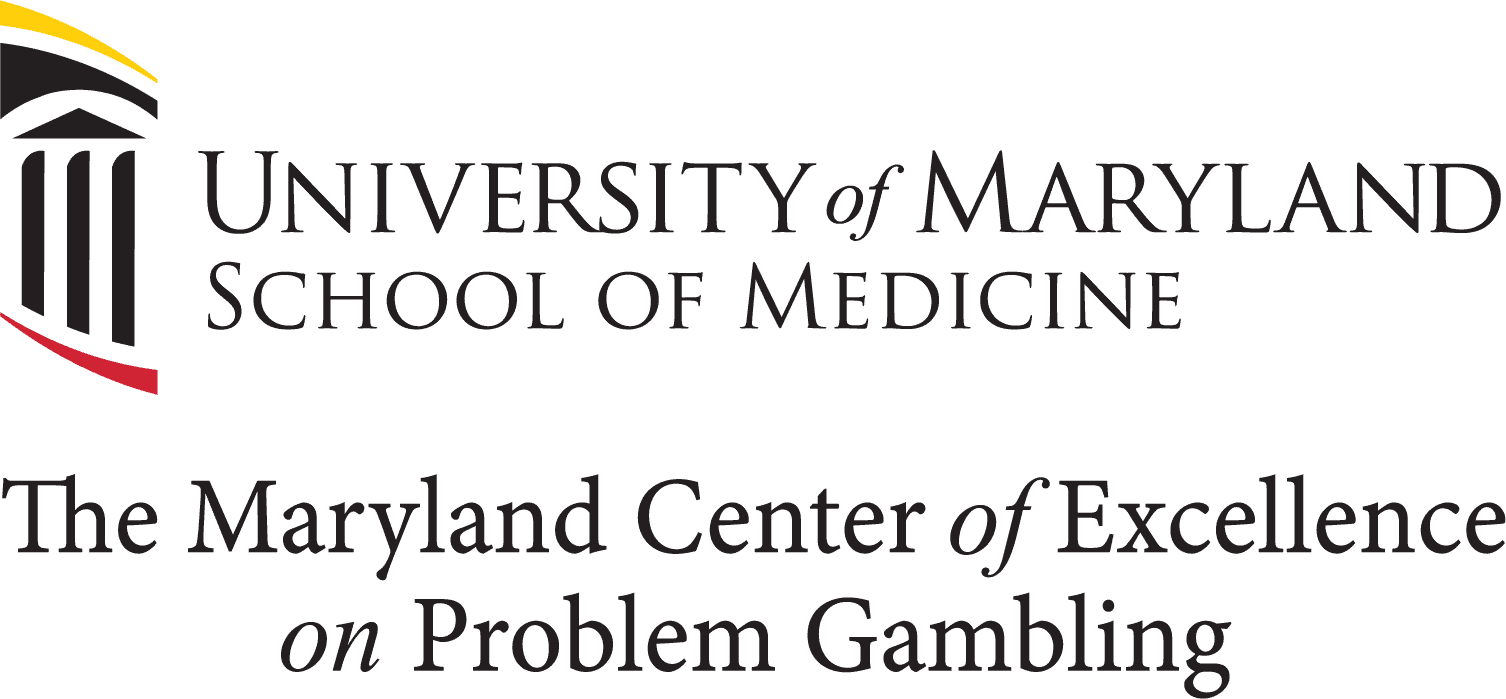The Center held its 6thAnnual Maryland Conference on Problem Gambling on Friday, June 15, 2018 at the BWI Airport Marriott to the largest attendance to date. Approximately 400 Maryland state and local policy makers, community leaders and behavioral health providers came together for this one day, free-of-charge conference that focused on “Building Opportunities Together for Prevention, Treatment and Recovery.” The conference, funded by the Maryland Department of Health’s Behavioral Health Administration, provided an educational opportunity on national and local initiatives covering prevention, treatment, peer recovery and research with five keynote addresses, six national and local experts, twelve community resource tables and three poster sessions.
The Center offers a sincere “thank you”to all who attended and participated. For those that could not join us, we have outlined conference highlights below:
KEY NOTES:
The Role of Peers in Gambling Recovery Support Services
Jim Wuelfing, CPP-R
Owner and CEO, The New England Center
Click Here to View Presentation
(Keynote Description)Over the past twenty years, the roles of peers in recovery support services has expanded greatly and includes peer recovery specialists, recovery coaching, advocacy, recovery support centers, telephone recovery support and much more. This session will examine recovery supports for recovering gamblers, the connection to SUD recovery supports, advocacy with anonymity and potential future efforts.
Mindfulness: A Tool for Psychotherapy and Treatment
Wiley D. Harwell, D.Min., LPC, ICGC-II
Executive Director, Oklahoma Association for Problem and Compulsive Gambling
Click Here to View Presentation
(Keynote Description)This presentation will establish the difference between the Westernization of the popular topic of Mindfulness and the evidence-based use of Mindfulness as a historical tradition and its use as a therapeutic tool. The hope is to challenge participants to become mindful therapists who are capable of being present with clients and to practice the art of therapy and treatment. The participants will also learn and experience brief forms of mindful practice and learn how this can help clients and how to make it a therapeutic tool.
Engaging Youth in Gambling Prevention – Back to the Future!
Jim Kooler, Dr.P.H.
Administrator, California Friday Night Live Partnership-Tulare County Office of Education (TCOE); California Center for Youth Development and Health Promotion-TCOE; Betting On Our Future (BOOF)-CA Office of Problem Gambling; Lifeplan Institute; California Mentoring Partnership
Click Here to View Presentation
(Keynote Description)Who would think that problem gambling would impact young people? Just as the brains of youth are vulnerable to alcohol, tobacco and other drugs (ATOD), their brains are vulnerable to gambling as well. In addition, they can be impacted by the gambling behavior of others. The evolution of gaming may be preparing youth to be the next generation of gamblers. Through youth development principles and practices, young people can be a powerful force in addressing problem gambling in their communities. The things we have learned about working with young people to address ATOD can be applied to problem gambling prevention. We are “Betting On Our Future” when we invest in young people to work on making their communities better places to live!
Research: Its Impact Nationally and Locally
Christopher Welsh, M.D.
University of Maryland School of Medicine – Associate Professor Department of Psychiatry and Medical Director, Maryland Center of Excellence on Problem Gambling; UMMC Substance Abuse Consultation Service; Medical Director-UMMC Comprehensive Recovery Program
Click Here to View Presentation
Keith Whyte
Executive Director, National Council on Problem Gambling
Click Here to View Presentation
(Keynote Description)Research continues to provide evidence-based data on public health aspects of gambling and gambling disorder, providing for the development of evidence based strategies for prevention and intervention. This interactive panel discussion will highlight two key areas of research conducted on a national and a local level: 2016 National Problem Gambling Services Survey, conduct by the Association of Problem Gambling Services Administrators (APGSA) and co-sponsored by the National Council on Problem Gambling (NCPG) and presented by Mr. Whyte; and SBIRT and Opioid Addiction/Problem Gambling Grants conducted by the University of Maryland School of Medicine and presented by Dr. Welsh.
2018 Maryland Legislative Update
Mellissa Sager, J.D.
Senior Staff Attorney, Network for Public Health Law-Eastern Region;
Legal Resource Center for Public Health Policy (LRC); Government Relations Coordinator, Maryland Center of Excellence on Problem Gambling.
Click Here to View Presentation
(Keynote Description)This presentation will summarize the Maryland legislative process, provide an overview of gaming legislation introduced in 2018, and review the status of gaming policy in Maryland. Additionally, this presentation will provide an overview of the 2018 Supreme Court decision on sports betting and its potential impact on gaming policy in Maryland.
AWARDS:
The Dr. Joseph W. Ciarrochhi Excellence in Problem Gambling Award
Presented by the Maryland Council on Problem Gambling
2018 Recipient – Dr. Paula S. Langford, LICSW, MAC
The Jeffrey M. Beck Scholarship Award
Presented by the Center and the National Council on Problem Gambling
2018 Recipient – Emily C. Needles, LCPC, LPCMH, NCC, MAC
COMMUNITY RESOURCES:
| Celebrate Recovery Books and Gifts
Offering a wide range of products to nourish the soul. Contact: Dawn Ringenbach (410) 647-9700 www.planetserenity.com
|
|
|
|
Beacon Health Options
We offer a wide range of managed behavioral health care services including Gambling, Substance Abuse Disorder and Mental Health. Contact: Sharon A. Jones (410) 691-4055, Sharon.jones@beaconhealthoptions.com www.maryland.beaconhealthoptions.org Contact: Patricia Langston (410) 691-4003, Patricia.langston@beaconhealthoptions.com www.maryland.beaconhealthoptions.org
|
|
|
Hope House
Hope House brochures will be available with description of services and our Philosophy of Care. Information offered to potential clients suffering with chemical dependency disorder. Information is also available regarding DWI/DUI Education, as well as Intensive Outpatient Program as described in comprehensive services. Contact: James Goines, MA, CAC-AD (301) 490-5551, jgoines@hopehousemd.org www.hopehousemd.org
|
| Maryland Coalition of Families
Maryland Coalition of Families (MCF) has provided family peer support to caregivers of children and youth with behavioral health challenges since 1999. In the last few years we have expanded to support loved ones of those with substance use problem throughout Maryland, and this year we have continued to expand to support families of those with problem gambling challenges. Contact: Nancy Quidas (443) 878-3365, nquidas@mdcoalition.org www.mdcoalition.org
|
|
|
|
Maryland Council on Problem Gambling We are a Problem gamblingadvocacy group focused on grassroots and community supportfor those affected by problemgambling and to promote increasedawareness and resources. We willprovide information, resources, and information about our Clergy/Lay Ministers Problem Gambling Certification Program and other faith-based trainings. Contact: Deborah G. Haskins (443) 691-2536, dghmosaic@gmail.com www.marylandproblemgambling.org
Maryland Lottery and Gaming Control Agency (MLGCA) Display of Responsible gambling brochures. Information on Maryland’s Voluntary Exclusion Program for casinos, the Lottery, and the state’s six largest licensed Bingo Halls. Also, information on the MLGCA’s application to the World Lottery Association’s certification program for responsible gambling standards. Contact: Jasmine Countess (410) 230-8798, jasmine.countess@maryland.gov www.mdlottery.com |
| National Council on Problem Gambling
The National Council on Problem Gambling (NCPG) has served as the National advocate for people affected by gambling addiction. Contact: Christina Wingate (504) 913-3608, christinaw@ncpgambling.org www.ncpgambling.org
|
| OATS – Outpatient Addiction Treatment Services
OATS is an outpatient substance abuse treatment program that specializes in working with individuals who have co-occurring mental health disorders. We provide an individualized treatment program and recognize that addiction is a chronic illness and recovery from addiction is a process. OATS staff consists of Addiction Psychiatrists, Licensed Social Workers and Professional Counselors. We provide free child care, group therapy, case management, individual therapy, Suboxone Maintenance therapy and mental health treatment services. Contact: Michael Papa (410) 328-1047, mpapa@som.umaryland.edu www.umms.org/ummc/health-services/psychiatry/services/outpatient-addiction-treatment
|
|
|
|
University of Maryland School of Law
Resource Center for Public Health Policy and The Network for Public Health Law The Legal Resource Center for Public HealthPolicy (LRC) at the University of MarylandFrancis King Carey School of Law provides probono technical legal assistance on a wide-rangeof public health issues, including tobaccoregulation, injury prevention, and reduction ofobesity and hypertension. Established in 2001,the LRC offers legal guidance to state and localgovernments, legislators, non-governmentalorganizations, health advocacy groups, andMaryland residents. www.law.umaryland.edu/programs/publichealth/
The Network for Public Health Law provides insightful legal assistance, helpful resources and opportunities to build connections for local, tribal, state and federal officials; public health practitioners; attorneys; policymakers; and advocates. The Network is comprised of public health attorneys and practitioners located at a National Coordinating Center and five Regional Centers — Northern, Eastern, Mid-States, Southeastern and Western — in order to provide both local and national support. Contact: Mellissa Sager (443) 909-0747, msager@law.umaryland.edu www.networkforphl.org
|
RESEARCH POSTERS:
| Differences in the Association of Problem Drinking and Gambling Disorder by Sex
Prior studies show men and those who abuse alcohol are more likely to have gambling disorder than women and those who do not abuse alcohol. However, it is unclear if the relationship between problem drinking and gambling disorder varies among men and women. This study used data from the Prevention and Etiology of Gambling Addiction Study in the United States (PEGASUS) to assess if the association between problem drinking and gambling disorder differed by sex. Contact: Krystal Swasey (717) 658-2761, kswasey@umaryland.edu
|
| Evaluating for Racial Differences in the Association Between Income and Pathological Gambling
Numerous studies show a higher prevalence of pathological gambling among African Americans vs. whites. However, the reasons for such differences are poorly understood. Income level is associated with pathological gambling, with a higher prevalence of pathological gambling as income level decreases. In this study, we examined whether the association between income level and pathological gambling varied by race for participants in the Prevention and Etiology of Gambling Addiction Study in the United States (PEGASUS) study. Contact: Brendan Day (410) 706-2406, brendan.day@umaryland.edu
|
| Challenges and Changes with a Gambling Prevention Program for Urban Youth
Smart Choices is a gambling awareness and prevention program that was previously used in suburban schools, but encountered challenges when disseminated in urban schools. Challenges reported by school staff included lack of relevance to urban youth, difficulty with engaging youth, and classroom management. This presentation discusses changes made to the Smart Choices program using evidence-based practices to help overcome challenges with implementation in an urban school setting. Contact: Brittany R. Parham, Ph.D. (254) 258-9038, bparham@som.umaryland.edu |
For additional information regarding the Annual Maryland Conference on Problem Gambling, please contact Donna Gaspar at dgaspar@som.umaryland.eduor 667-214-2120.




